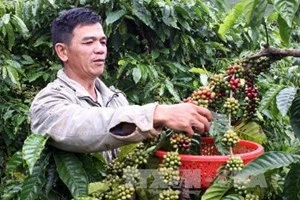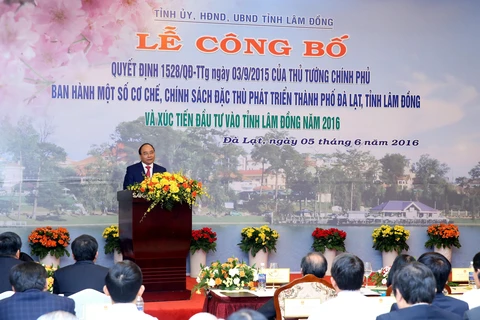Hanoi (VNA) – With its advantages in land and climate conditions, the Central Highlands province of Lam Dong is leading the country in developing hi-tech agricultural production in the context of increasing demand for quality agri-products.
Among 21 recognised hi-tech agricultural companies in the country, five are based in Lam Dong.
Vice Chairman of the provincial People’s Committee Pham S said the province has created Vietnam’s largest dedicated areas for growing vegetables, flower, tea and the second largest dedicated area for coffee.
The province has more than 43,000 hectares of production using high technology, equal to 16.4 percent of cultivable land. Of which, 11,900 hectares are under vegetables, 2,400 ha under flowers, 11,300 ha under coffee, 2,500 hectares under tea and 300 hectares for specialty trees.
The province’s high-tech agricultural exports make up 30 percent of the sector’s total production value and 80 percent of the province’s total export value.
Pham S said the province’s goal is to become a leading province in terms of high-tech agriculture in Southeast Asia.
Besides Lam Dong, hi-tech agricultural production has spread to many provinces and cities.
However, Nguyen The Nhuan, Director of the Research Centre for Potatoes, Vegetables and Flowers under the Southern Agricultural Science and Technology Institute, noted the need to conduct research into the specific conditions of each region in order to develop hi-tech agricultural production models effectively.
“In order to apply high technology in agriculture, there needs simultaneous improvement in technological factors across the supply chain, production and marketing,” said Nhuan.
According to Nguyen Van Bo, former director of the Vietnam Agriculture Science Institute, the growth of agricultural production will mainly depend on the policy on developing enterprises and technologies.
It is necessary to have incentive policies for investors in agriculture, he said, suggesting those related to land-leasing, land acquisition, tax, capital, risk insurance, and human resource training.-VNA






















